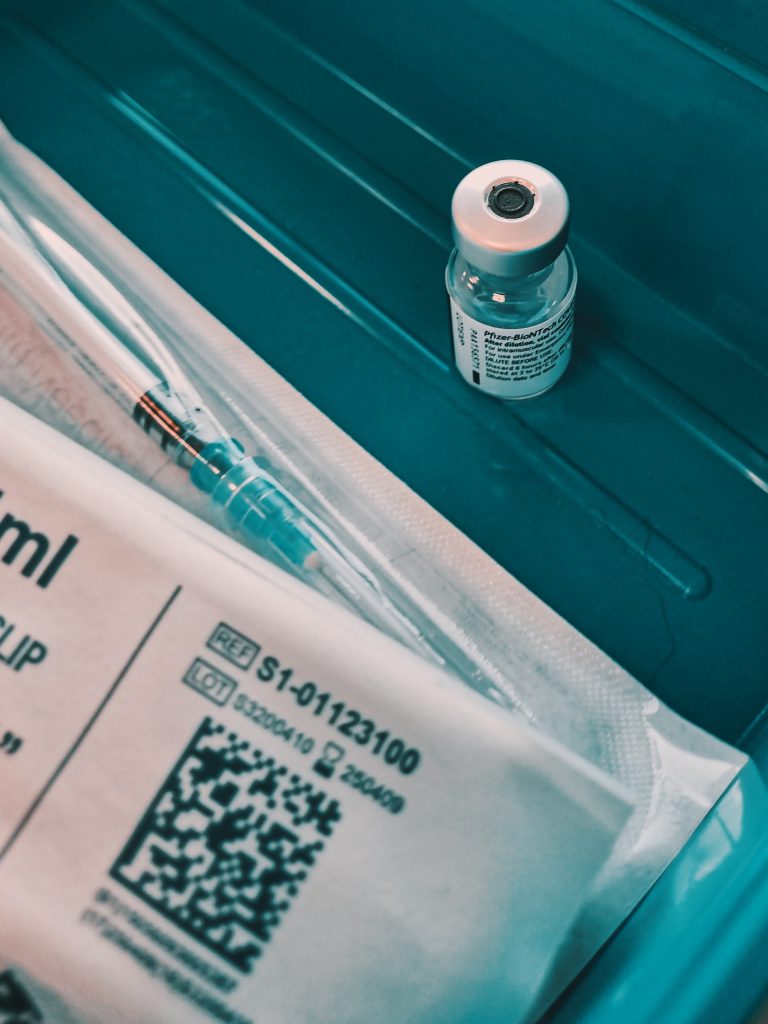Health
COVID-19 vaccine boosters: is a third dose really needed?

The UK is enjoying real success with its COVID-19 vaccine coverage. Around 85% of adults (44.8 million people) have received one vaccine dose and 63% (33 million people) both doses, with around 160,000 doses a day still being administered.
Vaccination with two doses helps prevent infection, and in those that do still get infected, lessens the impact of the virus by reducing disease severity, transmission of infection and death.
Even so, plans to give people a third shot have been unveiled by the UK’s Joint Committee on Vaccination and Immunisation (JCVI). The two main arguments to support giving a third dose are that the effectiveness of the first two jabs falls over time, and that there’s a need to take new vaccines to deal with viral variants, such as the delta variant. But what does the evidence say?
Several studies have investigated the durability of immunity to COVID-19, and their results are encouraging. Researchers have focused on specialised white blood cells called lymphocytes. Lymphocytes come in two main varieties: B cells, which make antibodies, and T cells, which can help the B-cell response or directly kill the COVID-19 virus.
Antibodies play a critical role in stopping viruses entering the body’s cells, which is what the virus needs to do to replicate. You can readily measure someone’s antibody levels in a blood sample, but the data on what a typical person’s antibody levels are following vaccination or infection with COVID-19 has been variable.
Most people have good persistent levels of antibodies that can be detected for at least seven months. However, some other people have quite low levels of antibodies or their levels rapidly fall after infection or vaccination. Such variability makes it difficult to know how useful antibody data alone is for measuring lasting immunity to infection.
A clearer picture can emerge if other indicators of immunity are considered: our B and T cells. A recent preprint (a piece of research still awaiting review by other scientists) suggests that looking at both antibodies and T cells gives a clearer picture of whether immunity has lasted.
And reassuringly, functional T-cell responses against COVID-19 have been detected six months after infection. Similarly, memory B cells – long-lasting cells kept on hand in case the immune system encounters COVID-19 in the future – have been detected in people even when their antibody levels have fallen so low as to be undetectable (though this research is also still waiting review). This suggests that even after their antibodies have waned over time, these people have the means to quickly produce new ones should they face the coronavirus again.
Older people (>80years) often have less effective immune responses when infected or vaccinated, meaning their overall immunity may be lower and may fade more quickly. In any booster campaign they would be likely to be prioritised. However, so far the data for older people has been encouraging. Another recent preprint has shown that older people produce a strong immune response following vaccination.
All these studies are immensely reassuring. Added to what we know about immune responses to viruses more widely, there’s growing confidence that immunity to COVID-19 is durable – although longer-term studies will still be needed. Nevertheless, right now there isn’t strong evidence that people’s immunity needs topping up with a booster.
Can current vaccines handle variants?
There are now several variants of the coronavirus in circulation, with four to date – alpha, beta, gamma and delta – being deemed variants of concern (VOCs). These are variants that spread more easily, cause worse disease or are less well managed by vaccines.
Initial studies on the effectiveness of vaccines against the alpha variant – one of the first discovered – have been encouraging. And while early data on the gamma variant suggested it may be somewhat able to evade immunity, a subsequent preprint suggests that vaccines still protect against it.
There have been concerns too about the delta variant, however data from Public Health England (also still in preprint) suggests vaccines offer robust protection against it. Even when vaccines give reduced protection – as seen with the beta variant – more early research (again awaiting review) suggests they still protect against the worst impacts of disease.
The evidence is showing vaccination is working: immunity is lasting and is protecting us against the worst effects of COVID-19. So why is the UK planning on third booster shots when there isn’t clear evidence that there’s a need? A huge concern should be that the majority of people in the world still remain unvaccinated. In many low-income countries as little as 1% of eligible adults have received one vaccine dose.
Poor vaccine coverage enables the virus to thrive. When it infects and reproduces in many thousands of people, this gives the virus an opportunity to mutate, which can lead to new variants emerging. It’s no coincidence that the VOCs all emerged from areas with high levels of viral transmission. There are also at least seven variants of interest that have also emerged from areas with high levels of viral transmission. These are viruses with the potential to be VOCs, and so are being monitored to see what threats they could pose.
To prevent more VOCs appearing, we urgently need to get ahead of the virus – not just in the UK, but everywhere. The evidence to date doesn’t suggest there’s an urgent need to give people a third COVID-19 vaccine dose in rich countries like the UK. It would be better to give those doses to countries with low coverage, rather than launching a booster programme. Because until we have high vaccine coverage around the world, we can never truly hope to escape this pandemic.![]()
Sheena Cruickshank, Professor in Biomedical Sciences, University of Manchester
This article is republished from The Conversation under a Creative Commons license. Read the original article.





















